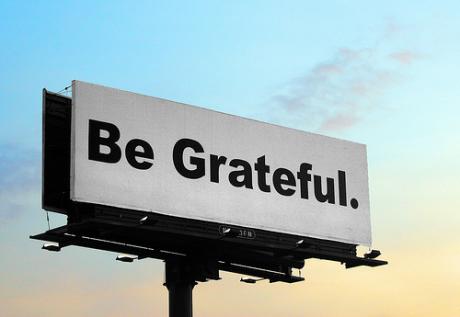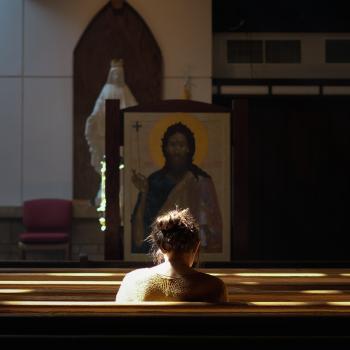A few years ago, I gave a Thanksgiving Day homily in which I quoted the Unitarian minister Peter Fleck. He suggested that perhaps the pilgrims weren’t thankful because they survived; maybe they survived because they were thankful. As I noted:
Gratitude doesn’t always come easily. We all know that generosity – the giving of a gift – means thinking more about others than about yourself. It represents an act of love. But so does being thankful. To give thanks is to extend yourself. It is to remember where the gift came from.
It is to go out of your way to acknowledge that — like the one cured leper in the gospel, who changed the direction he was headed, and walked back to Jesus, all the way back from the temple, to thank him.
There is love in that. A love for the gift – and for the one who gave it.
Reverend Fleck suggested that maybe that is what enabled the pilgrims to thrive and prosper: a humble appreciation for whatever God gave them, trusting that He would give them what they would need. It’s an optimistic message, really — and gratitude, I think, carries a spirit of optimism. Maybe that spirit can teach us something, as we endure our own hard winds and deep snows – the storms of our own lives. Especially now.
Now, along comes another view of the virtue of gratitude, from a website called Big Questions Online. (Full disclosure: the site’s executive editor is my old colleague from Beliefnet, Ansley Roan.) Each week, they look at a compelling moral issue, pose a question, and discuss. This week’s big question: is gratitude the Queen of Virtues? Writer Robert Emmons mulls:
When the Roman philosopher Cicero stated that gratitude was the queen of the virtues, he most assuredly did not mean that gratitude was merely a stepping-stone toward personal happiness. Gratitude is a morally complex disposition, and reducing this virtue to a technique or strategy to improve one’s mood is to do it an injustice.
Even restricting gratitude to an inner feeling is insufficient. In the history of ideas, gratitude is considered an action (returning a favor) that is not only virtuous in and of itself, but valuable to society. To reciprocate is the right thing to do. “There is no duty more indispensable that that of returning a kindness” wrote Cicero in a book whose title translates “On Duties.” Cicero’s contemporary, Seneca, maintained that “He who receives a benefit with gratitude repays the first installment on his debt.” Neither believed that the emotion felt in a person returning a favor was particularly crucial. Conversely, across time, ingratitude has been treated as a serious vice, a greater vice than gratitude is a virtue. Ingratitude is the “essence of vileness,” wrote the great German philosopher Immanuel Kant while David Hume opined that ingratitude is “the most horrible and unnatural crime that a person is capable of committing.”
Wander over to BQO and join the conversation. It’s smart, it’s thoughtful, and it’s refreshingly sane. Once you’ve spent some time exploring the questions, you may well find yourself feeling something akin to gratitude.
And thank God for that!











